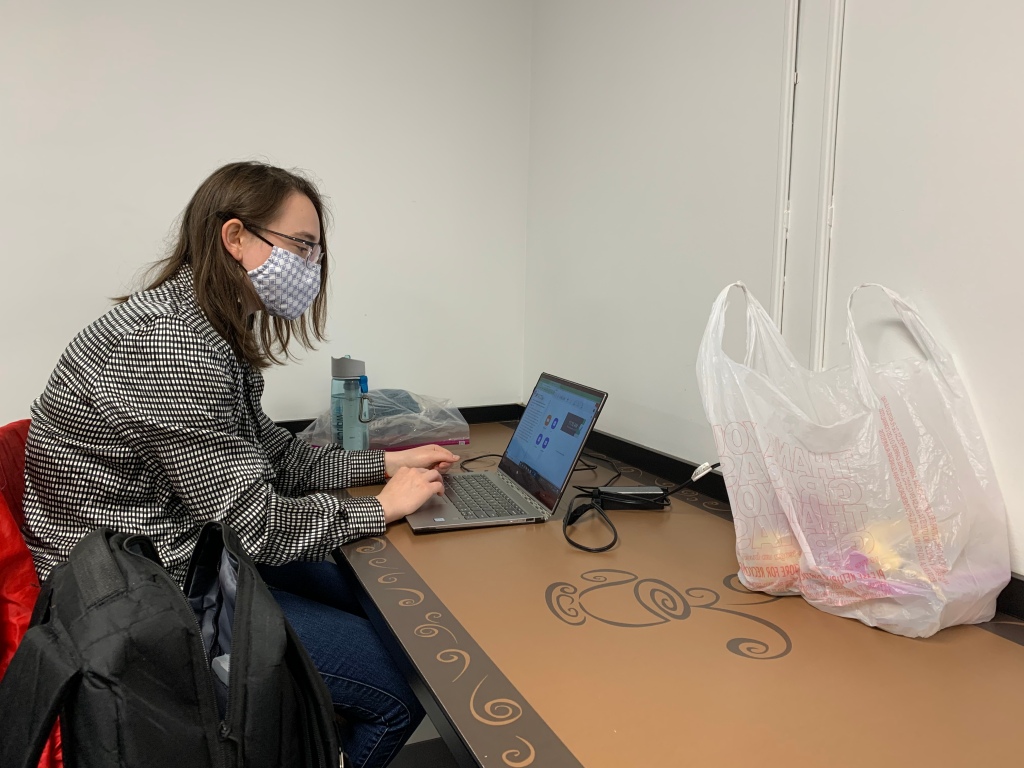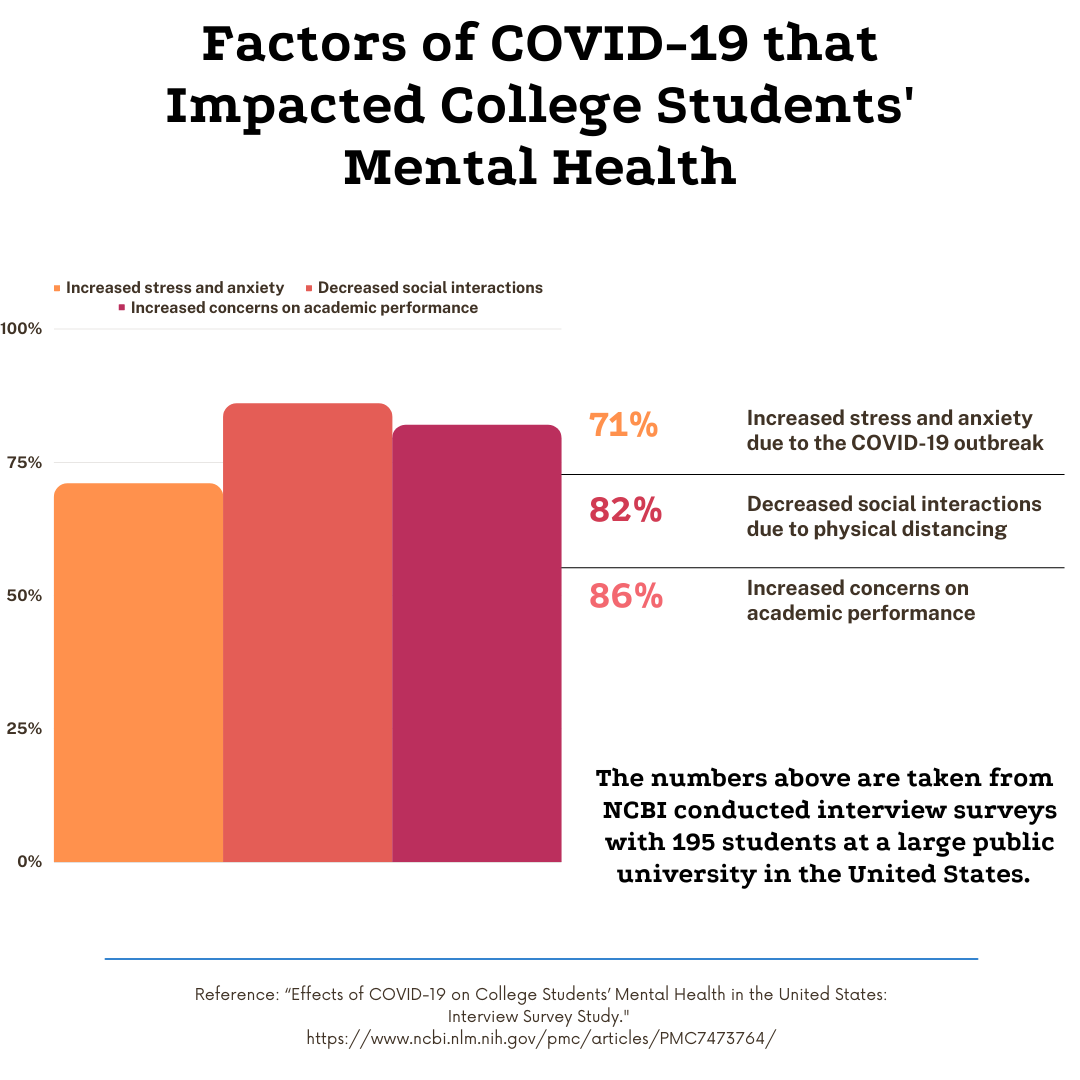
By Phoebe Damsky
Elizabeth Volynsky-Lauzon completed most of her college classes on Zoom in her childhood bedroom in upstate New York.
The American University senior graduating from the School of International Service said she is grappling with graduating early after spending only three semesters on campus.
“I was shut out from the world because of the pandemic,” she said. “I do want to stay with my friends, but I need a break from school.”
Students like Volynsky-Lauzon said they feel excited to graduate, fulfilled by their experience and relieved to have in-person graduation. At the same time, they feel fatigued and burnt out from a heavy course load and have heightened anxiety caused by the pandemic.
Volynsky-Lauzon is among the 1,500 students getting their degrees from American University this December. For students who were planning on graduating early, the pandemic uprooting their education has left them with mixed emotions.
Riddhi Setty, a senior in the School of Communication majoring in journalism with minors in literature and business and entertainment, completed her Zoom classes from her home in India when classes went online.
Because of COVID-19, she only had two and a half years on campus.
“I am sad to be leaving school more than I would have been had I not been home for a year and a half during a pandemic doing school online,” Setty said.
Despite the challenges of the pandemic, Setty is graduating with a high GPA, applying to graduate schools and the Fulbright grant program. She said she is prepared to graduate and enjoyed her time at AU but faces some heightened graduation anxiety due to COVID-19.
“The way that COVID played a role in college was that graduation snuck up on me,” Setty said. “I have a lot more anxiety and feel more stressed by graduation.”
Students like Setty and Volynsky-Lauzon took on average 18 credits in the fall and spring semesters and around 15 credits over the summer.
Sumaira Akber, director of Undergraduate Student and Academic Affairs in the School of Communication, said graduating early is “a Catch-22 situation.”
Akber said students may want the flexibility to graduate early and save time and money, but she has seen cases of students facing mental health and financial challenges during the pandemic that caused some students to take time off making graduating early difficult.
Last year, the National Center for Biotechnology Information conducted interview surveys with 195 students at a public university in the United States and concluded mental health was negatively impacted due to COVID-19.
Of the 195 students, 71% indicated increased stress and anxiety due to the COVID-19 outbreak, 86% had a decrease in social interactions due to physical distancing and 82% of students had increased concerns about academic performance, according to the NCBI data.

While not the case for many AU students, many undergraduates across the country face delayed graduation, lost internship opportunities and trouble securing a job according to data from last year from a study by the NCBI.
Cate Longino, a senior in the School of Communication majoring in public relations and strategic communications, interned with a public relations firm in Washington, D.C. this semester and will be working there full-time after graduation.
She said she is happy she got her last semester on campus even after she said the pandemic claimed a part of her college career. She said she is also excited to walk across the graduation stage in December.
“There is always something missing when you are not in the classroom,” Longino said. “But I enjoyed my time here and it would feel a lot stranger if I was graduating online.”
Volynsky-Lauzon will graduate this December but will walk in May of 2022 with her friends.
In her short time at AU she has had a coding internship the past two semesters while balancing a heavy workload and has job interviews currently lined up, but she felt like her time was cut short.
“After the pandemic, if I could stay here longer, I would,” Volynsky-Lauzon said.
You must be logged in to post a comment.